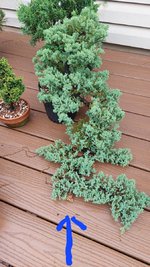There is a problem with non-experts "challenging" experts by taking nonsense, but there also needs to be room for outsiders to a discipline to offer their perspective. It's a very difficult balance to strike. You should never use your degree as a sword to cut someone down, but, sometimes, it becomes necessary to wield a degree as a shield to defend against stupid people who think they know better than you because they watched a few YouTube videos or read the Wikipedia article on the topic of your expertise. You could spend an hour dismantling everything they just said, or you could respond, "You don't know what you're talking about. Nothing you said makes any sense. I do know what I'm talking about. Here's my degree to prove it." It's tricky to know when that maneuver is warranted.
It's never warranted imho.
If you are an expert of the matter, you should be able to summarize it in a sentence or four. If the opposing party still doesn't understand, you can refer to the essentials, the basics.
In all things else, you can just stop the discussion because it would take too long.. No degree waving needed to do that.
The thing is: you either want to inform people, or you don't. If you do, then take time to do so. If you don't, you can just say that.
"I don't know", "I don't want", or "I see we have a difference in views, let me explain my standpoint" or "It doesn't work like that because you're skipping over X and Y, you could look at that and come back to me if it's still not clear" are answers that we can use at any time. The latter is an expert using their expertise to push another to educate themselves. I try to use that more often nowadays when working with students, and it seems to work.
One of my professors once hit me back with "Just because I have a degree in chemistry, doesn't mean I know about chemistry, so let's have a look at it together."
We schooled each other, as equals. Once we were levelled on the subject, we could easily discuss it.
I mean, it's great that someone spent a whole lot of time on a subject, but if they're taking the role as educator (which is a choice) I believe they should face the consequences of meeting not so bright people who want to get brighter.
If you want to keep knowledge to yourself, the choice to not educate is also pretty easy and perfectly fine to make.


